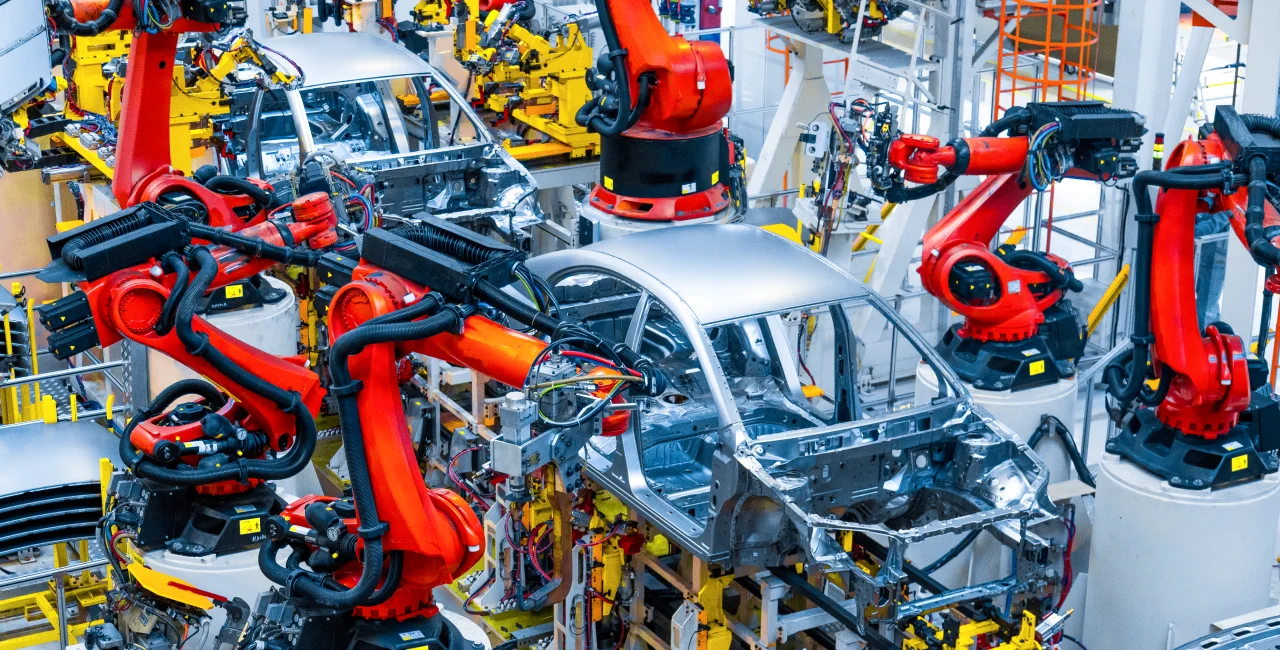The ripple effects of Germany's economic downturn are hitting the Czech Republic’s manufacturing industry hard, with companies closing plants and laying off thousands of workers in both countries.
Hard times for jobs associated with Germany
Europe's largest automaker Volkswagen’s newly announced plan to close at least three plants in Germany and cut tens of thousands of jobs will almost certainly have a knock-on effect on the Czech economy, analysts tell Czech media outlet Seznam Zprávy. This is because a large bulk of Czechia’s economy is dependent on automotive exports, as Czechia is a big hub for car manufacturing and production.
PARTNER ARTICLE
German industrial giants like Continental and ZF Group have also announced significant layoffs that have impacted Czech workers. While ZF Group’s layoffs are primarily focused on Germany, company representatives stated they continue to monitor efficiency and profitability across all plants, including those in the Czech Republic, which employ over 3,500 people. Likewise, the German Continental firm will, in its Czech plant in Brandýs nad Labem, eliminate around 200 administrative roles.
Petr Musil, member of the Czech National Budget Council“When Germany sneezes, the Czech economy gets the flu."
Over the past quarter, 31 Czech employers announced mass layoffs to the Czech Labor Office, with a total of more than 6,000 jobs affected. Many of those made redundant had their jobs tied to the German manufacturing sector. Experts warn that, while not all layoffs may happen immediately, the impacts will be felt across various sectors.
Czech firms feeling the strain
Czech companies like Beneš a Lát, a manufacturer of alloy products for cars, have also felt the brunt. The company, which had a workforce of 450 before the Covid-19 pandemic, has since reduced its staff by about 150 due to declining orders. Other manufacturers have also cut jobs, including Brawe, which recently closed its facility in the Czech Republic, laying off its final 40 employees in recent months.
“In general, the situation is serious because of how consumer demand has slowed in Western Europe,” said Radek Špicar, vice-president of the Czech Union of Industry and Transport. He explained that the automotive sector’s shift toward clean mobility, coupled with regulatory costs and fines, has increased economic pressure.
“Everyone hopes to avoid layoffs, but in some cases, I think it won’t be possible. So far, however, I do not see a dramatic mass wave of layoffs,” Špicar added in a more optimistic tone.
Other countries, sectors under pressure
Other sectors are not immune, and it is not only Germany that is causing issues. Otis, a large elevator manufacturer, will lay off 200 of its 250 Czech employees by next year and shift escalator production to China.
Additionally, American car-parts manufacturer Adient’s recent decision to shut down two Czech factories, cutting 1,100 jobs, marks just the beginning, experts say.
The situation is particularly dire for smaller automotive suppliers in the Czech Republic, according to Petr Knap, an expert on the automotive market at EY. He noted that smaller second- and third-tier suppliers face more uncertainty, especially as larger players optimize their costs and scale back spending on testing and development.
Similarly, the Austrian company Fronius plans to cut 127 jobs in its Český Krumlov solar production plant. Energy costs in the Czech Republic, higher than in neighboring countries, are only compounding the competitiveness challenges.
“The [automotive] industry is not doing very well. This year, we will be happy if we get to zero [have no profit or loss]. This is due to the fact that the recovery of consumer demand across Europe is slower than expected after all the crises," Špicar said.












 Reading time: 3 minutes
Reading time: 3 minutes 



























